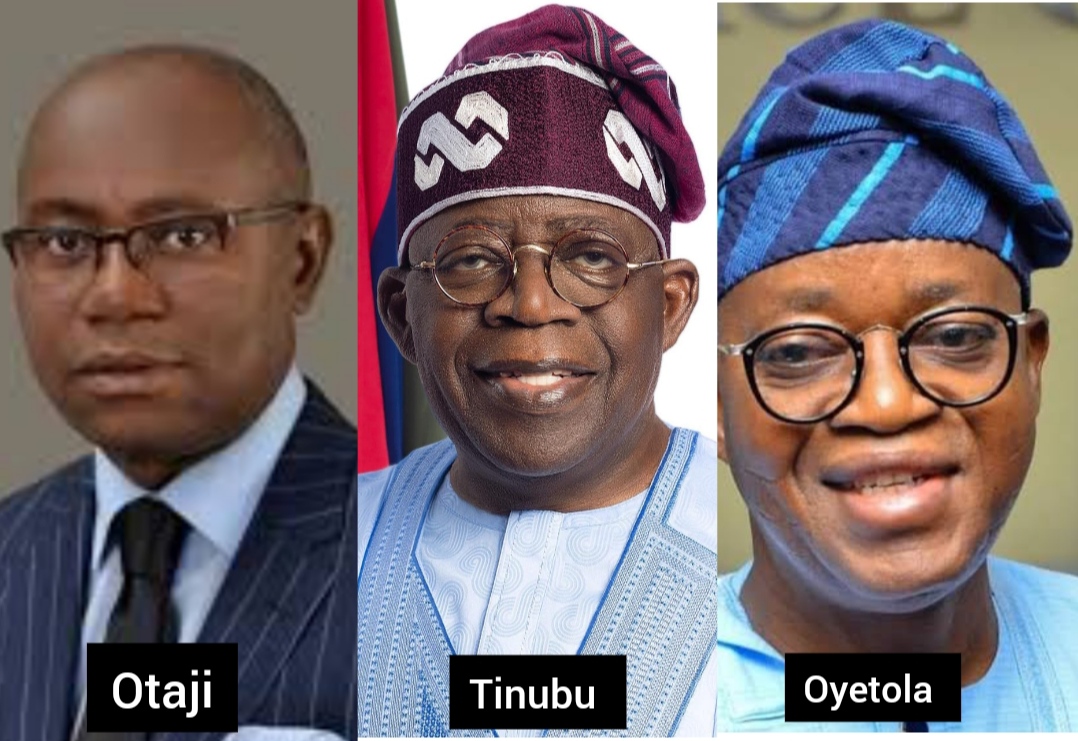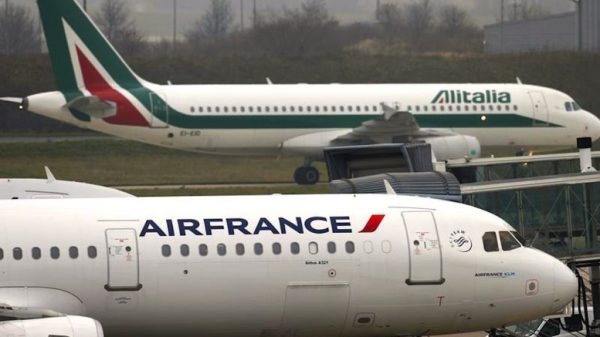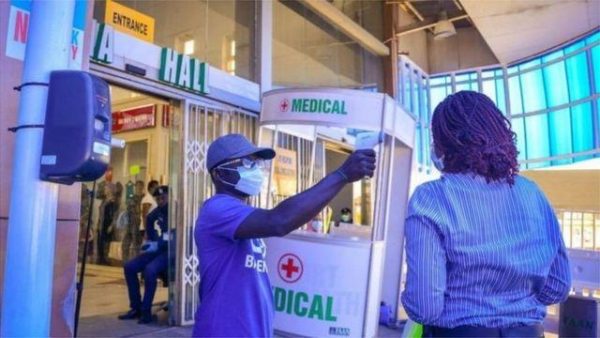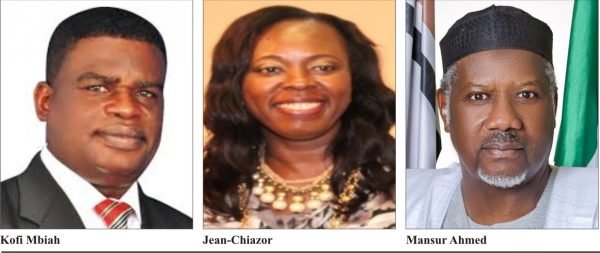CGC’s Visit: A Celebration Of Scepticism
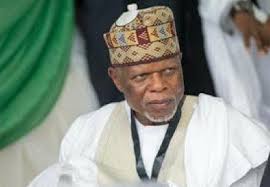
In the port system there has been incessant debates on the most effective and well thought out plan to achieve best port practices and efficiency in the ports as well as increase revenue for the Federal Government without digging big holes in the pockets of unsuspecting end users who often are made to bear the brunt of inflation.
The most distressing of these issues is the migration of Nigerian importers to neighbouring countries’ ports due to arbitrary charges. When the new Comptroller General of Customs (CGC) Col. Hameed Ali (Rtd.) made his first working and familiarization visit to Apapa maritime stakeholders meeting, he gained a lot of insight to the magnitude of the issues beguiling the industry.
Of course, he did not understand at first, so he started by reading the riot act “I believe that all of us are law abiding citizens and with that in mind, I want to say that you as stakeholders that in the course of doing business you do cut corners and we are in the business of making sure that the right duty is paid. The days of corruption are gone and nobody caught receiving or giving will go scout free, because the giver and the taker are both culpable and based on the understanding we have, we are trained to know the right thing to do.”
But when the issues started coming up one after the other , first from Capt. Mohammed Basir, Managing Director of Apapa Bulk Terminal Limited (ABLT) representing Terminal Operators who stated, “The terminal operators’ complaint is about the inadequacy of escorts assigned during transfer of cargo to the off dock terminals, most times after processing documents for the transfer of cargo, there is revenue loss in the name of compliance, during transfer of these cargo from the port to some of the off dock terminals, the cargo sometimes it gets diverted along the road and nobody can account for it. So, we need adequate number of escort officers to escort these containers.
“Sometimes, we might have as much as two hundred cars and there is only one escort and there is no way one escort can do that job, sometimes we have to wait a day or more for one escort that will escort cars to Kano, Ibadan and all other places and one day delay in this industry translates to avoidable cost that is transferred to the final consumer.
Basir highlighted other major issues faced by terminal operators as; technology, infrastructure and personnel, “for example, the PAAR system, as we speak there is a big delay between the PAAR, the banks and the Customs confirmation. Sometimes you also have to send some documents from Lagos to Abuja for confirmation before getting discharge approval. That is not acceptable the Customs Area Controller (CAC), locally should be given the mandate to do all this, provided all the information is on the platform where those in Abuja can see all the information because any form of delay at the ports is a lot of money.
“There is a lot of arrests made on contrabands and smuggling, this is only scratching the surface because there is no way Customs can stop smuggling, the important thing is to make sure that the differential between Nigeria and Cotonou is not worth smuggling. Because Cotonou and Togo are building a lot of ports infrastructure for the Nigerian importers and that should be taken cognizance of as the business man is interested in maximizing profits.” He finally stated.
Similarly, the Public Relations Officer (PRO) of Association of Nigerian Licensed Customs Agents (ANLCA), Dr.Collins Farinto said “on the issue of revenue, CGC, if truly you want to achieve a corruption free system in this customs brokerage practice we have to look at the World Customs Organizations (WCO) policy on revenue generation,
“An instrument of WCO called benchmark is used in other countries of the world in cargo clearance, but in this country, for used cars or used goods there is no specific Benchmark and we want a corrupt free system? if we can have this benchmark for used cars published in the national dailies, we will not need to give customs any money, we will not need to collect much from importers we will only collect our own service charge and pay Customs its normal duty.
Farinto highlighted some other issues in the ports that will contribute to a successful tenure for the CG and aid the fight against corruption when he stated that most of the scanners are not working and the few functional ones have become obsolete, adding that there has been congestion at the ports due to difficulties experienced in accessing Form M causing cargo to accrue demurrage.
He also stated that incessant alerts on cargo declaration has been a pain in the neck for importers and urged the CG to use his good office to issue a directive that once a Pre Arrival Assessment Report (PAAR) has been issued the only reason to query it should be wrong classification or under declaration of cargo.
Chief Eugene Nweke, President of the National Association of Government Approved Freight Forwarders (NAGAFF) lent his voice in agreement to the assertion of the first two stakeholders when he said, “I agree with most of the issues raised by my colleagues and I wish to add that the PAAR should be made more interactive to facilitate trade.”
Responding the CG said” We need to go back to the drawing board. Any cargo that has not been released should be transferred to the warehouse. It is unfortunate that at the time of the concessioning, they did not give us the warehouses, the only one we have is at Ikorodu, so we have to be responsible for the transfer of such containers to the warehouses.
“ We are going to implement this and make sure that arbitrary charges being levied by terminal operators are controlled and make sure that no deliberate act and unnecessary demurrage on the trading public is allowed by making sure that goods are transferred to the warehouse. I believe that the Nigerian Shippers’ Council has a vital role to play here and they must do their job the way they have been empowered by the Federal Government.
“Trade facilitation goes hand in hand with compliance. Give us compliance and we will give you trade facilitation, so please give us compliance, the issue of escorting containers to terminal is of paramount importance to us in Customs because if we do not escort containers they could be diverted and we could loss revenue. So I direct the controller Federal Operating Unit (FOU) to make sure that this issue does not rise again, they should have enough officers or ask for headquarters to send enough officers to escort all containers to off dock terminals.” He charged.
He further said, “The issue of the removal of the ban on rice importation is a fiscal policy and as long as we have a policy that is not favorable definitely there will be diversion of goods to neighboring countries. We have discussed this at management level, that the view on the reduction of tariff on certain goods should be sent to the Federal Minister of Finance, this policy should be reviewed, the only thing that should be given preferential rate should be goods of protected industry, but then there must be caution because we should not be too high for people to want to choose other countries and then smuggle the goods through the borders.”
“Benchmark is allowed by WCO, but there was a point when it was introduced and you kicked against it, at the WCO level, at the council meeting in June, it was agreed that customs administration can introduce benchmarking of certain good as regards its value rate and that whatever anyone is declaring must not fall below that rate.
“I want you to be warned when collecting jobs, because sometimes importers will import sanitary wares with tiles and expect the value to be calculated on one of the items and we will not condor that.” He warned.
On the limitations of PAAR and multiple alerts, he said “ I did say that from head quarters systems audit send alerts to guide officers at command level and when the officers go for examination, if the alert is on HS code it should be forwarded to the conflict resolution committee and if is value related it should be communicated through the valuation officer and this has to be done electronically, in order to facilitate trade,
He urged, “If there is any conflict with the PAAR, there should be documented evidence because there have been instances where at the point of examination, we discover that what the importer declared is different from what is in the container. Whatever your complaints with the PAAR make your reports and send it to us.”
At the end of it all with a better understanding of the ills plaguing the system, the CG appealed “As stakeholders we do not see you as strangers and in working together we have to work together to make each of us a success. If proper declaration is made it is simplifies everybody’s job and once that proper declaration is in place, I bet you within 24hours your cargo is out but if you make it difficult we must have to subject that container to physical examination. I am here to make things easy not difficult but we need a synergy to facilitate the trade in and out of Nigeria.
It has so far been talk, it is time for the CG to put his money where his mouth is, it is one thing to listen to the plights of stakeholders in the maritime industry and promise to change the system, it is another to effect these changes in an industry where every second counts in Naira or dollars. The people in ports operations want to see the change.




